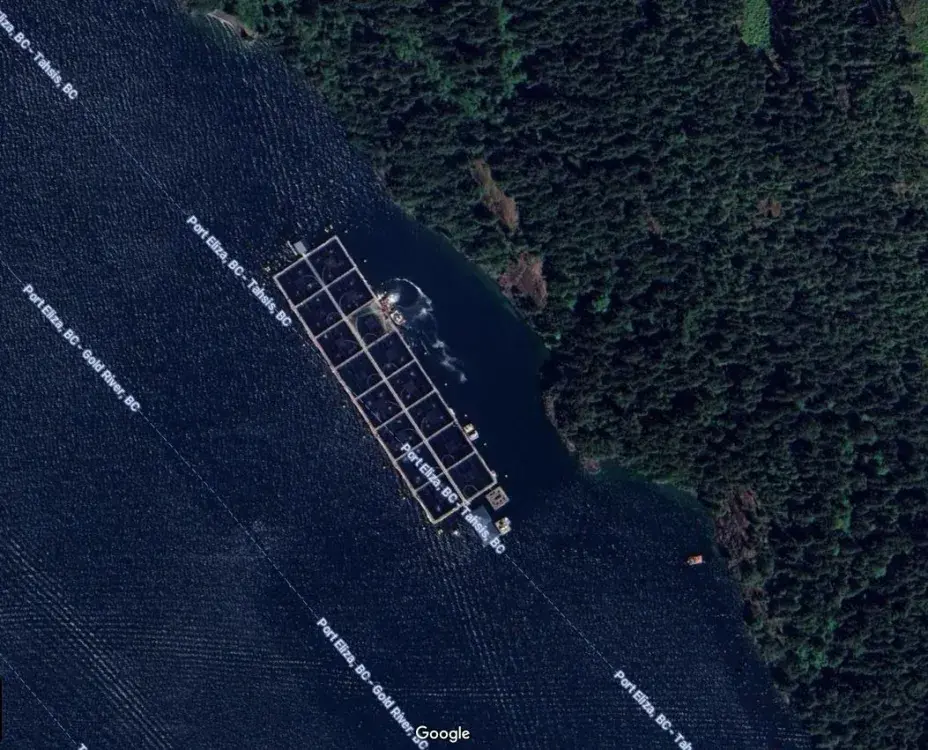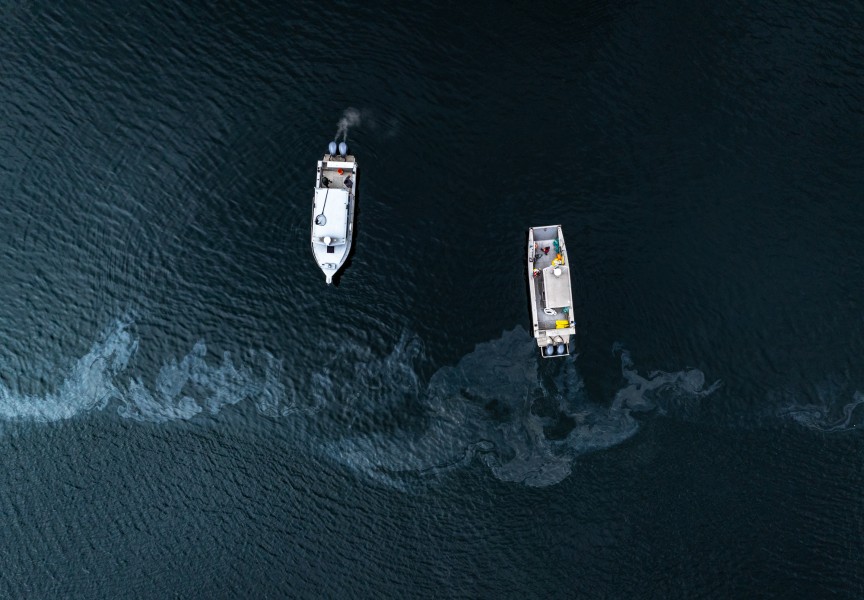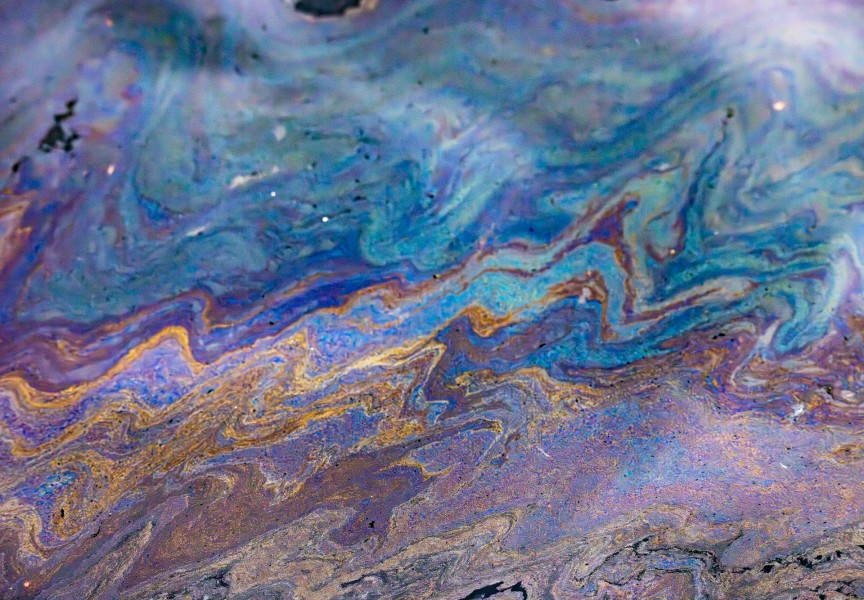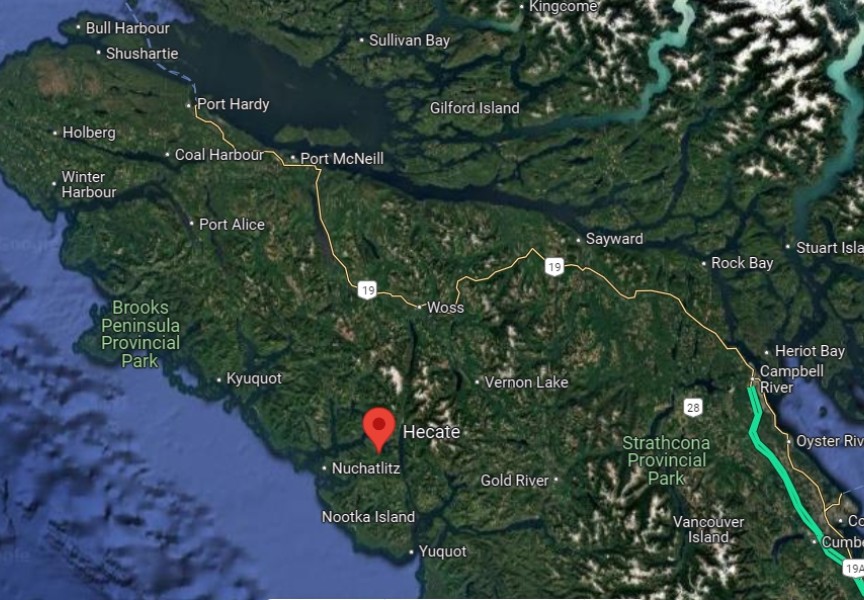It’s the worst time of the year for a fuel spill on the coast, says a clearly upset elected Ehattesaht chief.
“I am sure I will get angry next, but for right now I am sad that all of this fuel is out there sloshing around our territory, washing up on our beaches,” said Chief Councillor Simon John in an update from the Ehattesaht/Chinehkint First Nation.
John’s frustration came in the aftermath of a 7,500-litre diesel spill on Saturday, Dec. 14, which occurred south of Zeballos at Grieg Seafood’s Lutes Creek salmon farm site in Esperanza Inlet. The province’s emergency management agency reported that the spill occurred on a floating concrete platform, the result of “human error” while the fuel was being transferred to power the fish farming operation.
“[A] transfer pump was not shut off properly,” stated the Ehattesaht First Nation.
Licenced to produce up to 23,400 tonnes of Atlantic salmon annually from the region, Grieg operates 22 farm sites off the west coast of Vancouver Island, including net pens in Ehattesaht territory.
Grieg has apologized for the incident, noting it is working with other groups to “minimize damage”. By law the aquaculture company is obligated to deal with the spill, and has contracted Strategic Natural Resource Consultants – a company that is majority owned by the Ehattesaht. Booms were set up to contain the spill, but strong winds from a coastal storm on Saturday, Dec. 14 had spread the oil sheen as far as the south end of Nootka Island.
“We had a really high tide on Friday night with the full moon and it was pushed further up the beaches than normal with the storm surge that occurred,” said John in the update.
This dispersion into the tidal areas makes clam harvesting a health hazard, and this activity has been closed in the area until there are no signs of diesel contamination, stated Ehattesaht’s chief and council.
“It is clam season and our people should be out there digging on these low winter tides,” stated John. “We have done this forever and this year we had to close some beaches.”
Clam samples and water are being tested, as 40 people were working near the spill site on Dec. 16, with a command centre set up in Ehattesaht’s main office in Zeballos. So far those involved include staff from Grieg Seafood, B.C.’s Ministry of Environment and Parks, Environment and Climate Change Canada, as well as representatives from the Ehattesaht, Nuchatlaht and Mowachaht/Muchalaht First Nations. No recoverable fuel has been reported.
Diesel is much lighter than water, according to the US government’s National Oceanic and Atmospheric Administration, a quality that quickly spreads into a very thin sheen which can easily spread.
“When spilled on water, most of the oil will evaporate or naturally disperse within days or less,” stated the NOAA. “However, if the diesel is released on or very close to shore, or concentrates on catchment beaches, there can be heavy loading and penetration into the sediments when the groundwater in the beach falls during low tide, even in beaches and flats with a coarse-grained sediment veneer.”
This can make shellfish toxic, as it can “bioaccumulate” the oil. Clams and other shellfish can naturally remove diesel if the environment becomes clean, although this process takes several weeks, states the American agency.
In its media update the Ehattesaht First Nation noted a long history of fuel spills due to industrial activity in its territory, including leaks from abandoned fish canneries and logging operations. The First Nation is reminding operators in the region to be “extra vigilant” while handling fuel, and is pushing for additional fail-safe measures to prevent spills.
“Our people use these beaches continually and we have for thousands of years. It is where we get our food,” noted Chief John. “We always know there are risks when there are activities, but we must do better to prevent this type of accident.”





